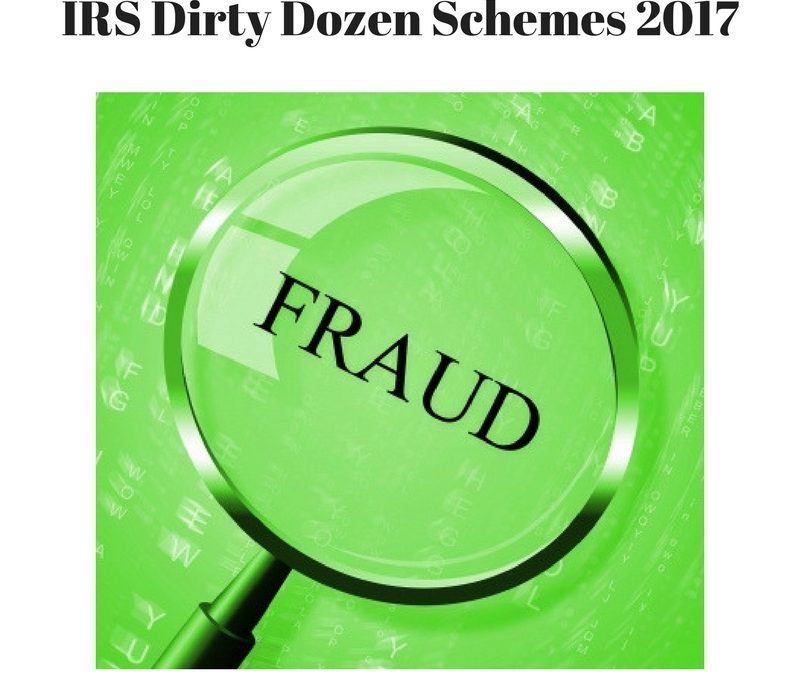Every year the IRS put publishes what it calls the Dirty Dozen. These are schemes people have used to try to get out of paying taxes. This year the list includes:
- Hiding Cash in offshore accounts: People put money in foreign accounts hoping it won’t be discovered, and therefore, not taxed.
- An individual stating the won’t pay on religious or moral grounds
- Micro-captive insurance tax shelters: scammers persuade owners of businesses to participate in schemes that lack many of the attributes of genuine insurance.
- Inaccurately reporting income to boost available tax credits. The IRS also warns about misrepresenting debt repayments for credit cards or mortgages.
- Overstating deductions: These can include charitable contributions, business expenses or taking credit for individuals who are not your dependents.
- Taking gas or research credits: The fuel use credit is generally allowed in off-highway or farming businesses. The research credit must be supported by documentation to show the investment in R&D.
- Tax preparers claiming they can get large refunds for clients: Some scammers lure in clients by stating they can get them large tax refunds and will take deductions or credits on returns that don’t actually apply to them.
- Fake charities set up by scam artists: There are often organizations set up with very similar names as true charities to scam individuals out of funds. Make sure you know to which charity you are donating, especially after a major event such as a natural disaster when fake charities pop up.
- Unscrupulous preparers setting up shop to falsify returns: Although most tax preparers are honest and provide excellent service, some start businesses to perpetrate refund fraud.
- Identity Theft: No matter how careful everyone is to protect data, scammers get smarter and learn how to access information that allows them to take over someone’s identity often resulting in tax refunds going to them before the true person can file their return.
- Callers impersonating the IRS: scammers will call individuals threatening jail, deportation, or other punishments for not paying taxes. If you truly owe tax to the IRS, a letter will be mailed to you prior to any action being taken.
- Phishing e-mails: scammers are not just trying to trick older adults, but are sending fake e-mails to payroll companies, human resource departments, schools, and other organizations with sensitive information hoping to trick individuals into releasing data.
Being aware of these scams will help you prevent fraud being perpetrated. Although no one likes to pay taxes, it’s important to follow all the guidelines, file returns properly, and beware of preparers who promise you large refunds that you weren’t able to claim in the past. If you are looking for a tax preparer, ask those you know for references. By doing so, you will hopefully work with an honest person who isn’t trying to scam you out of money, or file false information on your returns which can result in penalties for underpaying taxes due.
Image courtesy of Stuart Miles and freedigitalimages.net
